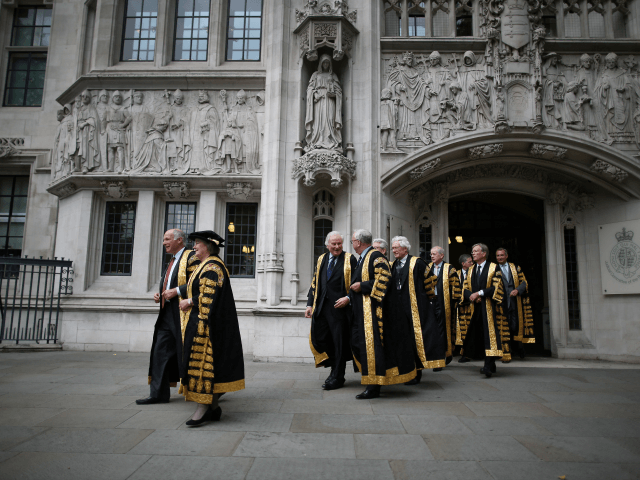Britain’s Supreme Court has thrown the country’s deportation policies into chaos by ruling that a foreign criminal cannot be deported to a country with poorer free healthcare than the United Kingdom.
Justices including the top court’s infamous former president, Lady Hale, and two colleagues who also serve as ad hoc members of the European Court of Human Rights, agreed with a Zimbabwean migrant who should have been deported more than a decade ago that his removal would breach Article 3 of the European Convention on Human Rights, which states that “No-one shall be subjected to torture or inhuman or degrading treatment or punishment”.
The migrant’s lawyers cleverly reinterpreted this European article, understood by most to be a prohibition against physical torture and holding people in unsanitary conditions, as a right for his client to remain in Britain so long as his home country could not provide him with the same expensive, taxpayer-funded HIV medication as the British National Health Service (NHS) free of charge — and the Supreme Court concurred.
The court also “ordered that no one shall publish or reveal the name or address” of the Zimbabwean, restricting the freedom of the press to provide the public with the full facts of the case — although it did reveal that he was “convicted of battery” before the government ordered his deportation and further convicted of “offences including possession of a firearm and ammunition” after the order was given but not carried out.
The government, already deporting ever-fewer migrants amid ever-rising levels of illegal migration, now fears the precedent set by the judgment will jeopardise many more deportations, including that of ISIS fighter-linked gang rapist Yaqub Ahmed — who was on the verge of finally being flown out of the country in October 2018 before a mutiny by passengers, who were seemingly never punished, allowed him to stay and lodge more appeals.
The Supreme Court of the United Kingdom, a creation of globalist former prime minister and Iraq War architect Tony Blair, has been a focus of allegations of so-called judicial activism for some years, with critics claiming it essentially creates new law on the hoof in order to suit its members’ political sensibilities — such as when it ruled that Boris Johnson’s decision to ask the Queen to prorogue (temporarily suspend) Parliament while Remain MPs were working to block Brexit was unlawful, despite not being able to point to any laws the prorogation had broken.
This sense of a Supreme Court which makes up the rules as it goes was reinforced by the emergence of remarks by Lord Neuberger, a former president of the court who was still a member of its Supplementary Panel, that its judges “get around” the fact that they have no power to change laws “by being able to ‘interpret’ statues, and sometimes we interpret them quite, ah, imaginatively.”
The Home Office, which is supposed to be responsible for border security and public safety, offered a characteristically uninformative official reaction to the Supreme Court judgement, saying that it is “considering the ruling carefully before taking the next steps”.
The government has previously failed to deliver on pledges to stop illegal boat migrants, release a report on the ethnic background of grooming gang rapists, and to strip such rapists of British citizenship and deport them where they hold dual nationality, among a catalogue of other such failures — often facilitated by judges.

COMMENTS
Please let us know if you're having issues with commenting.